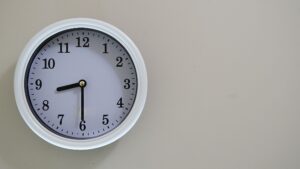Nursing shifts are busy, unpredictable, and physically demanding. In recent years, wearable technology has become more popular among healthcare professionals, especially smartwatches. These devices promise convenience, health tracking, and better organization, but do they really make a difference on the job?
Why Nurses Are Turning to Wearable Tech
Nurses often juggle multiple tasks while staying focused on patient care. Wearables like smartwatches offer quick access to notifications, alarms, and reminders without pulling out a phone. Many also provide features that support personal wellness, including step counters, heart rate monitors, and stress tracking. For nurses working long hours, these functions can be both practical and motivating.
Practical Benefits on Shift
Staying on Schedule
Smartwatches can provide discreet reminders for medication times, documentation, or break schedules. While hospital systems have built-in alerts, personal reminders add another layer of organization.
Health Tracking
Many nurses appreciate the ability to monitor their own well-being during long shifts. Features like step tracking, heart rate monitoring, and hydration reminders encourage better self-care in a demanding environment.
Hands-Free Convenience
Glancing at a watch is faster and less disruptive than checking a phone. This helps nurses stay connected without breaking focus from patient care or infection control protocols.
Limitations to Consider
While smartwatches can be helpful, they are not perfect. Notifications can become distracting, and battery life may not always last through extended shifts. Hospitals with strict technology policies may also limit wearable use in patient areas. Nurses should evaluate whether the benefits outweigh the potential challenges in their specific workplace.
The Future of Wearables in Nursing
As technology advances, smartwatches and other wearables may become more integrated into healthcare systems. Future applications could include syncing with electronic health records, monitoring vital signs, or supporting hands-free charting. What is now a convenience tool may soon become a standard part of the profession.
Smartwatches can offer meaningful benefits for nurses, from better organization to personal health tracking. They are not a replacement for clinical tools, but they can support nurses in managing the demands of a busy shift. For many, wearable technology is more than just a trend—it’s an everyday aid in navigating the challenges of healthcare work.
At XPRT Staffing, we understand that nurses need tools and opportunities that support their success. Whether you are interested in day shifts, night shifts, travel nursing, or flexible contracts, we help connect you with positions that fit your lifestyle and goals.



